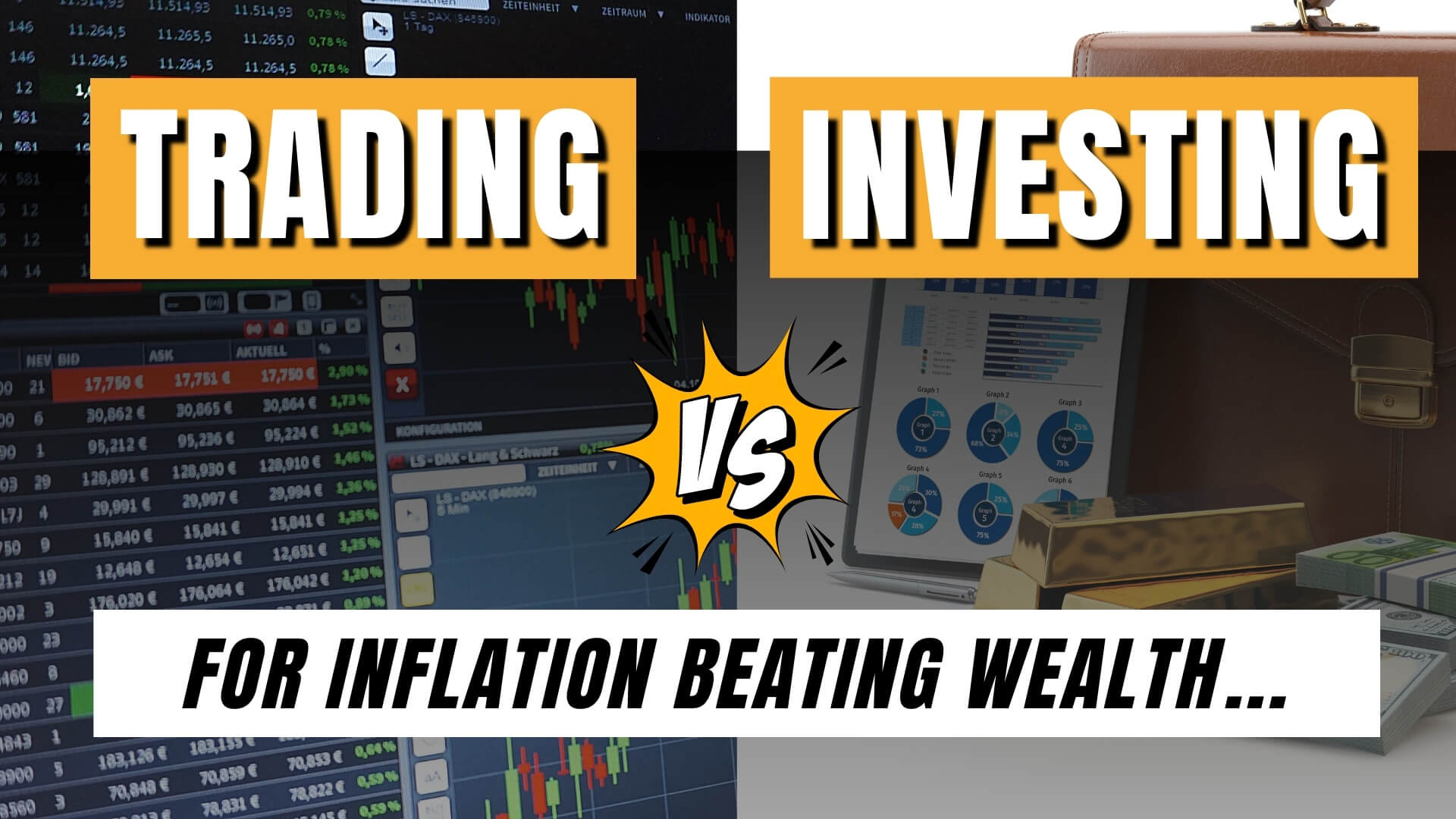Today, we’re diving into an essential topic: distinguishing between trading and investing. Many people use these terms interchangeably, often without understanding the significant differences. The concepts may sound similar, but they are fundamentally different approaches to handling your finances.
Trading: A Risky Coin Toss
To get started, let’s talk about trading. Trading is often seen as a 50/50 coin toss. Sometimes you win, and sometimes you lose. It’s a hard game, with no guarantees. The good news is that there is an alternative: investing. Unlike trading, investing is virtually fail-proof in the long term.
The Case for Investing
Investing has never generated a loss over the long term. This safety makes it a remarkable choice for anyone interested in building wealth. In this post, I’ll demonstrate why investing is a better approach. Trading may seem easy, with countless YouTube courses and software tools claiming to teach you how to trade. But if it were so easy, all the big institutional funds and hedge funds would be trading. The reality is they don’t, because trading doesn’t work.
The Illusion of Trading
Please don’t believe the hype or the videos promoting trading. Take it from me; investing is the way forward. Real investing is about owning assets that generate cash flow, entitle you to dividends, and offer future capital gains. Trading often lacks this foundation.
The Evidence Against Trading
If you’re not convinced, let’s look at some data. One simple piece of evidence is to visit a trading platform like IG Index. Trading platforms are required by law to disclose their client loss percentages. Typically, around 70 percent of clients lose money. This statistic alone says a lot about the reliability of trading.
The Power of Investing in Real Companies
Investing in real companies offers many benefits. Companies like Apple, Visa, Tesla, and Procter & Gamble are known worldwide and generate real profits. As an investor, you own a piece of these companies and are entitled to a share of their profits and dividends.
Historical Data: Markets Always Recover
Here’s some more evidence: consider the last 15 years of market events that have caused declines. Despite these events, the markets always recover and make new highs. Each market correction was a buying opportunity, not a reason to sell. Serious investors, like Warren Buffett, capitalize on these moments to increase their holdings through pound cost averaging.
Mind-Boggling Returns
Over a 15-year period, if you had held onto your investments, you would have seen significant growth. For example, the market was up by an average of 16.3 percent annually. However, if you had used stop losses or tried to time the market, you would have missed out on these gains.
Long-Term Investing: A Safe Bet
Data from as far back as 1928 shows that holding investments long-term has never resulted in a permanent loss. On a daily basis, it might feel like a 50/50 chance, but over 15, 20, or 30 years, the odds are massively in your favor. Investing in shares has consistently provided inflation-beating returns.
Global Perspective: Not Just a US Phenomenon
This principle isn’t limited to the US. In the UK, for instance, data going back to 1870 supports the same conclusion. Despite various crises, the markets always recover. When you invest, you’re accessing this long-term growth.
Additional Evidence: The World’s Oldest ETF
Consider the performance of one of Vanguard’s oldest ETFs. If you had invested 50,000 pounds in 1976, it would be worth 6.7 million pounds today. Adding a small amount consistently each week would yield millions. This demonstrates the power of investing and the impact of compounding over time.
Conclusion: The Magic of Compounding
Investing is not only about better returns but also about simplicity. You don’t need to be right or wrong or time the markets. Just follow a simple, passive process, and let compounding work its magic. This approach minimizes effort and maximizes financial freedom.
So, remember, invest rather than trade. The benefits are two-fold: better returns and a much easier journey to financial freedom. Hopefully, this post was useful in highlighting the power of investing. See you next time!







